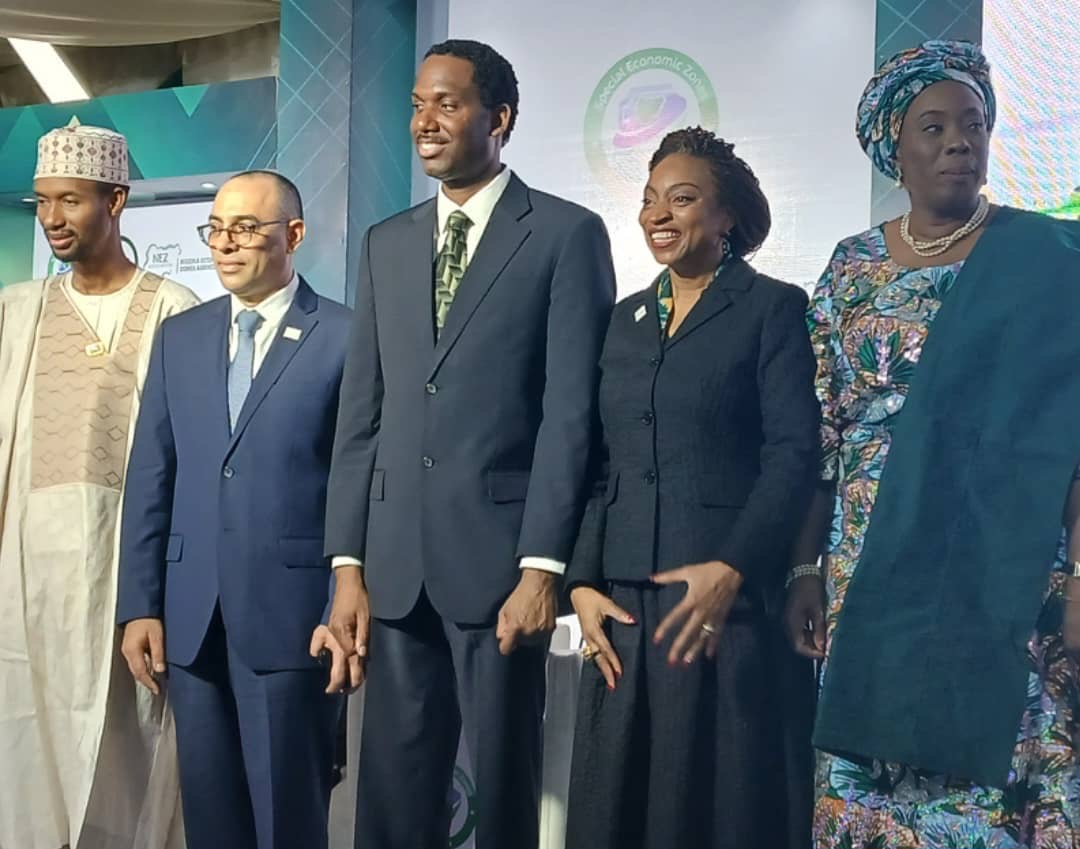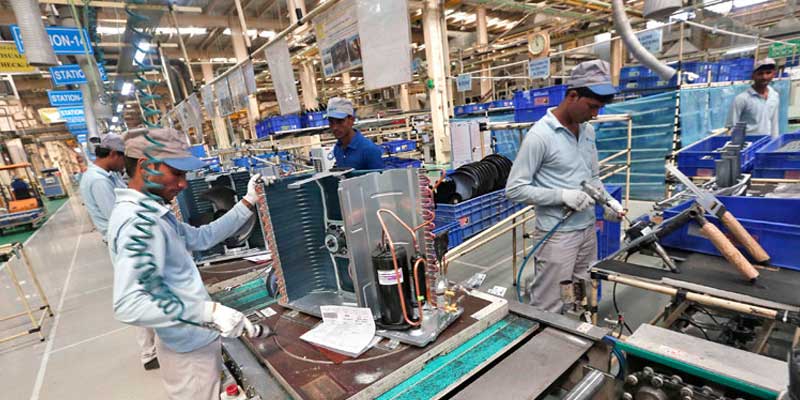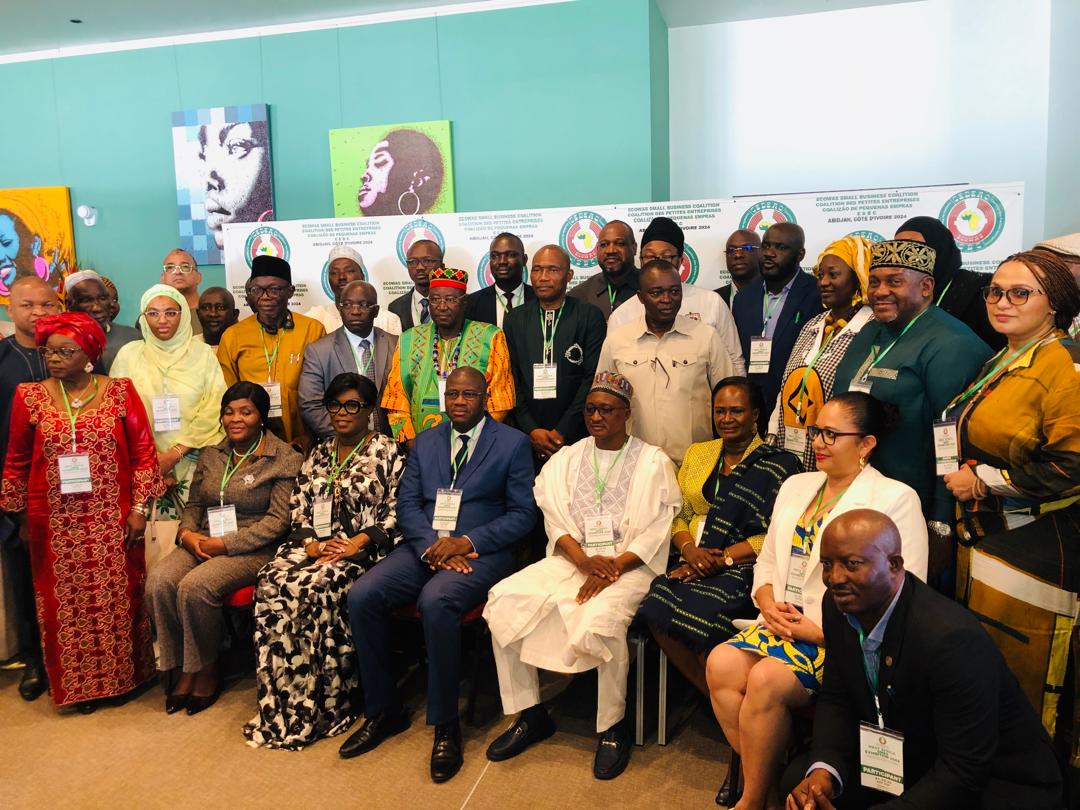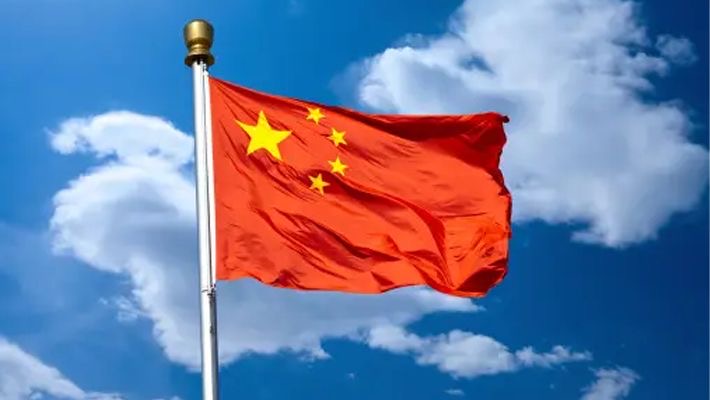By Mark Longyen
The Economic Community of West African States (ECOWAS) has called on West African entrepreneurs to strengthen subregional trade, saying it is collaborating with the private sector to boost subregional economic growth.
Dr Omar Touray, President of the Commission, made this known at the inaugural edition of the ECOWAS Small Business Coalition (ESBC) Exhibition and Conference in Abidjan, Ivory Coast, on Thursday.
The News Agency of Nigeria (NAN) reports that the three-day fair brought together West African Micro, Small and Medium Entreprises (MSMEs) to showcase their products, and explore collaborative opportunities for growth.
Touray, represented by Dr Tony Elumelu, ECOWAS Director, Private Sector, described the event as a crucial step in preparing the subregion to actively participate in the recently unveiled African Continental Free Trade Authority (AfCFTA).
He reminded the entrepreneurs of the importance of regional integration in driving economic growth and development and called on them to leverage the opportunities provided by AfCFTA to achieve success.
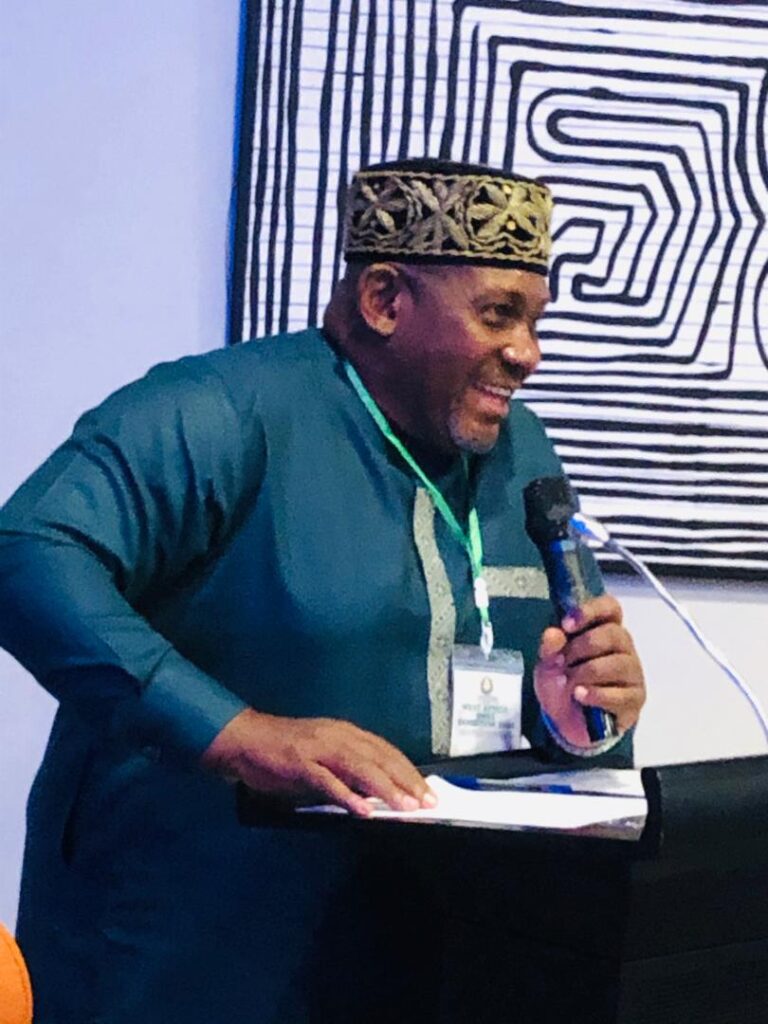
“The African Continental Free Trade Area (AfCFTA) presents a unique opportunity for our region to increase trade, investment, and economic cooperation.
“This fair is a crucial step in preparing our subregion to actively participate in the AfCFTA.
“The ECOWAS Commission has been working closely with critical stakeholders to facilitate the private sector.
“We have engaged with regional business associations, such as FEBWE, FEWACCI, MAN, and FOPAO, to support businesses and promote regional economic integration,” Touray said.
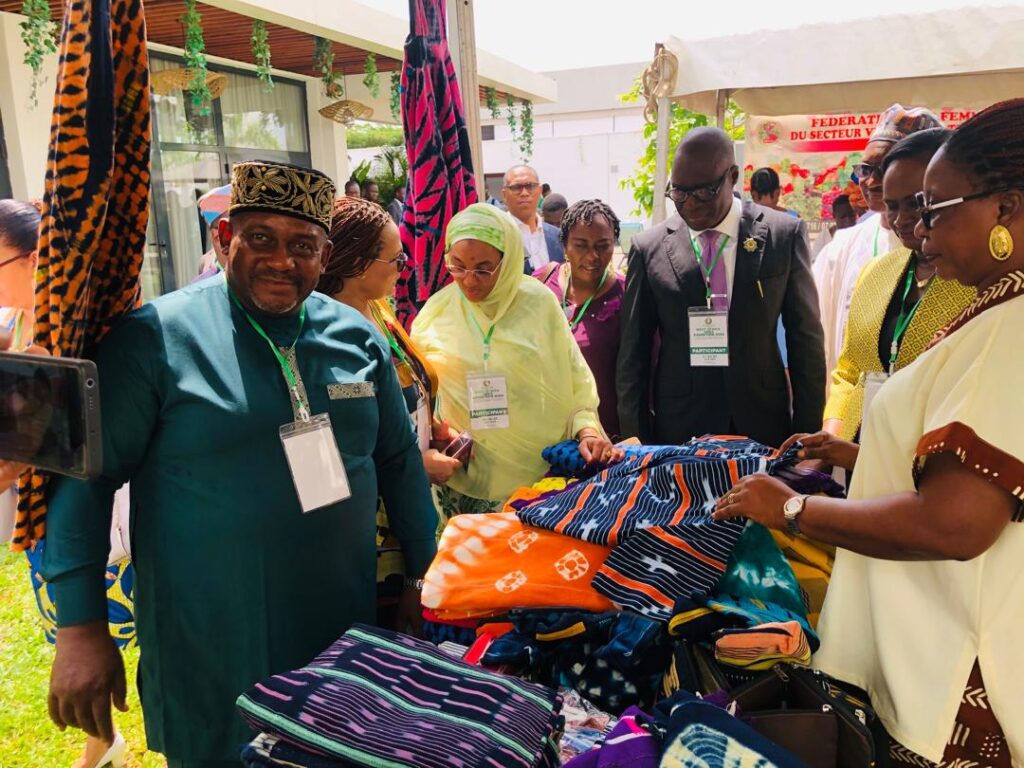
He said that ECOWAS had also developed an MSME Charter, which is a landmark document to promote the growth and development of MSMEs in West Africa.
According to him, the Charter focuses on a broad spectrum of intervention areas, including enterprise education, regional collaborations, regulatory enhancements, promotion of specialised development corridors, and crucial financial assistance for MSMEs.
He said that it also addresses issues relating to support for women in business, recognising the critical role that women play in driving economic growth and development in the region.
“To further support businesses, ECOWAS is developing a text on regional economic zones, with the support of the World Bank through its implementing agency, IFC.
“ECOWAS has also adopted a regulation on the ECOWAS Business Council with clear criteria for composition.
“I am confident that this fair will pave the way for increased cross-border trade, regional integration, and economic growth in our subregion,” Touray added.
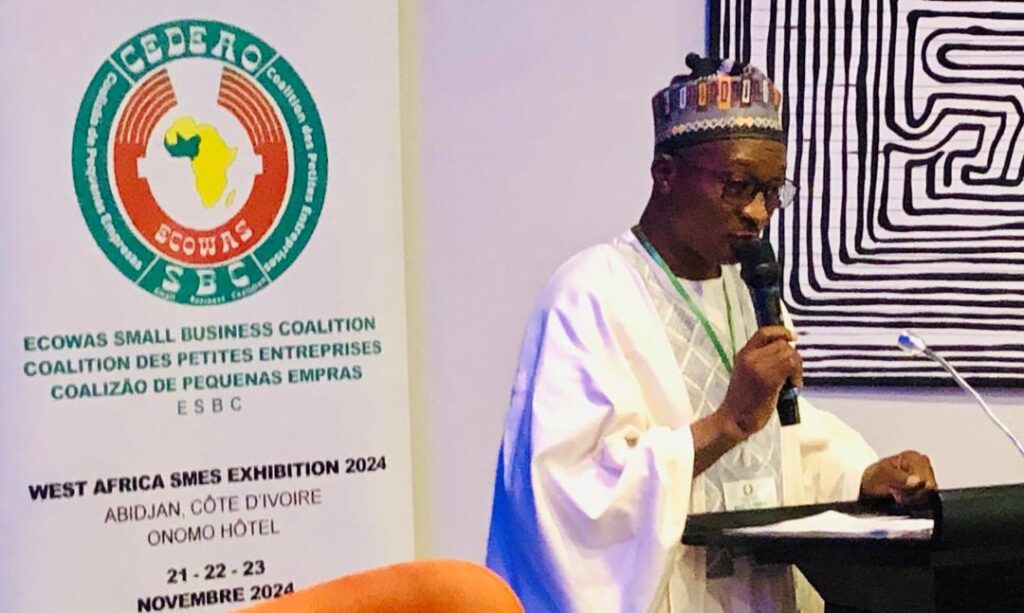
Also speaking, Dr Abdulrashid Yerima, President, ESBC, said the event was organised to celebrate the “modest achievements” of MSMEs in the subregion and reaffirm their commitments to fostering a united, and thriving ECOWAS.
He disclosed that the group was about to create a comprehensive database of MSMEs across ECOWAS states that would serve as a foundation for understanding the needs, addressing the challenges, and fostering growth.
Yerima said the coalition was dedicated to overcoming barriers to cross-border trade, streamlining processes, providing access to finance and markets, and ensuring that MSMEs succeed in both regional and global markets.
“Today, we are reminded of the importance of regional integration in driving economic growth and development.
“The African Continental Free Trade Area (AfCFTA) presents a unique opportunity for our region to increase trade, investment, and economic cooperation.
“This exhibition is more than just a gathering; it is a crucial step in preparing our subregion to actively participate in the AfCFTA,” he said.
The ESBC President noted that by fostering collaboration among SMEs, governments, and stakeholders, they would lay the groundwork for ECOWAS to become a leading contributor to Africa’s continental trade ambitions.
Dr Souleymane Diarrassoba, Ivory Coast’s Minister of Commerce and Industry, thanked ECOWAS for choosing the country to host the event, and pledged to collaborate towards the subregion’s integration and development.
Represented by Mr Silvere Konan, Director General, SMEs, he said SMEs were essential for national industrial development due to their immense potential value creation, lasting employment, and wealth development.
Diarrassoba noted that SMEs could play a much more important role in economic development, hence, the Ivorian government’s support for all initiatives of promoting, developing and strengthening them.
Mrs Fanta Cisse, ECOWAS Resident Representative to Ivory Coast, in a remark, explained that the event was designed to encourage regional integration through different measures and rules that exist in the context of regional integration.
She said it was a remarkable success because all ECOWAS’ 15 member countries, including the so-called Sahel’s Burkina Faso, Mali and Niger, attended.(NAN)(www.nannews.ng)
Edited by Ismail Abdulaziz







